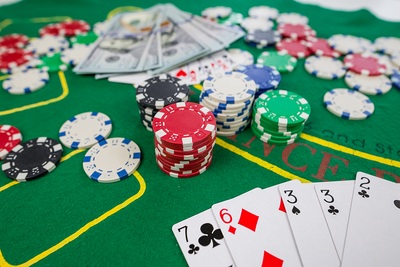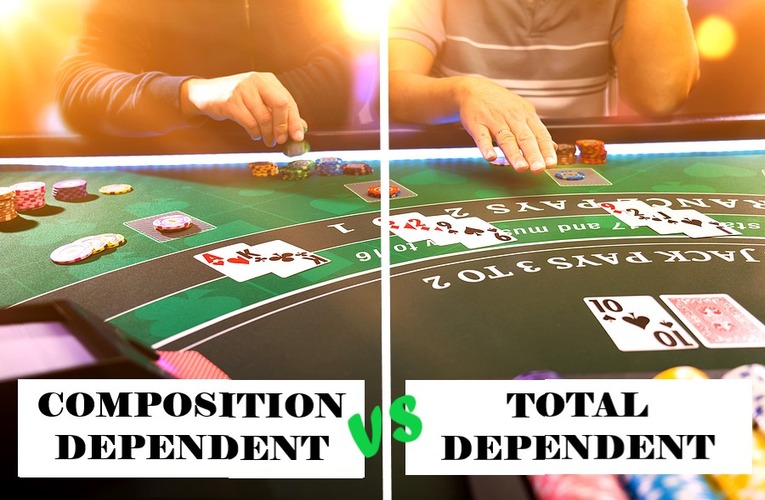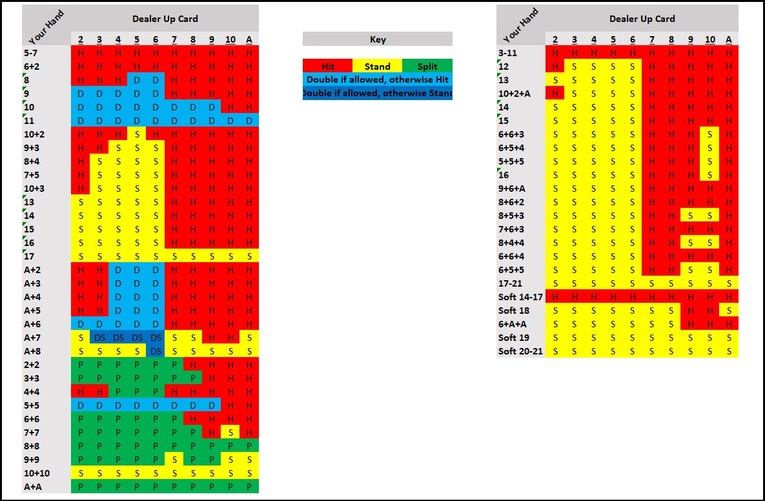 Some people play blackjack for a bit of fun, and have a decent understanding of the game but don’t put any real effort into improving when they are not already playing. They might not use strategy at all.
Some people play blackjack for a bit of fun, and have a decent understanding of the game but don’t put any real effort into improving when they are not already playing. They might not use strategy at all.
Others like to take it a little bit further and do some research into the topic, learning basic strategy and maybe even practice at home or with friends. They might fancy themselves as a bit of an expert.
Then there are the people who never stop looking for the tiniest extra bit of advantage over the casino, whether that be by hunting down tables or online games with specific rule structures, or tinkering with their strategy to find an extra 0.0021% worth of edge.
Those people would probably be interested in composition dependent blackjack strategies over total dependent blackjack strategies, and this is why.
Composition Dependent vs Total Dependent

Before we look at this in any more detail, let’s make sure we understand the meaning of the words.
The word ‘composition’ just means how something is made up. It is the act of combining 2 or more elements to make a whole, like ingredients for a cake, or all the different notes and instruments used to create a piece of music.
In blackjack, it simply relates to the different cards used to create the hand. So the strategy is ‘dependent’ on the ‘composition’ of the hand.
You obviously know what the word ‘total’ means, so we won’t patronise you with that one.
These two types of strategy differ in just one simple way:
- Composition Dependent – The strategy considers each individual card in the hand, not just the total score. Put another way, it takes into account how the hand total is created.
- Total Dependent – The strategy is simply concerned with the hand total. In other words, it doesn’t care which cards are in the hand, just what they add up to.
So with a composition dependent strategy, a hand of 17 could be made up of a 10 and a 7, or a 5, a 9, and a 3 – and the recommended action might be different for both, even though the total is the same.
Example of Composition Dependent Strategy
 If you have ever seen a blackjack basic strategy card you will recognise one for a composition dependent strategy, but the difference between them is you need a new strategy card for each extra card dealt to your hand, because the number of cards in the hand (and what those cards are) influences what the maths tells us you should do.
If you have ever seen a blackjack basic strategy card you will recognise one for a composition dependent strategy, but the difference between them is you need a new strategy card for each extra card dealt to your hand, because the number of cards in the hand (and what those cards are) influences what the maths tells us you should do.
So you need a strategy card for your initial deal, another if you hit once, yet another if you hit twice, again if you hit 3 times, and so on.
Add to this the fact that the strategy will change slightly depending on the specific rules for every individual game, and you end up needing scores of strategy cards.
For example, you will need a new set of strategy cards based on whether the dealer stands or hits on soft 17, if doubling is allowed after splitting, if surrendering is an option etc.
For this reason, we can’t show you a definitive cheat card because that doesn’t exist, you will have to create (or buy) your own for the specific set of rules you are playing.
The ones below are good examples though.

These show the strategy that should be played for a single deck game after the initial deal, and then after a 3rd card has been dealt, with the following rules:
- Dealer stands on soft 17
- Dealer checks for blackjack
- Double after split ok
- Can only split once
- No surrender
- One card only to split Aces
Notice that once you get past 2 cards you can only hit or stand, for obvious reasons, which does make things a little easier to get your head around.
Notice also that, even though this is a composition dependent strategy, sometimes it is still simply the total value of the hand that matters.
When to Use a Composition Dependent Strategy

For clarity, the basic strategy that most people use and talk about in blackjack is a total dependent strategy.
It’s well worth learning because for a little bit of effort you get a lifetime’s worth of knowledge allowing you to play the game optimally against the casino.
The thing about composition dependent strategies, is that they are quite complicated to learn and don’t significantly increase your edge, so a lot of players might not think they are worth the effort.
For example, the biggest extra advantage you will get using a composition dependent strategy over a total dependent strategy is about 0.039%.
That equates to one extra hand won in every 2,800 hands.
At a real table you might get through around 60 – 80 hands per hour, while online it might be more like a few hundred hands per hour. Either way, it will take you a long time to play 2,800 hands.
What’s more, that 0.039% is for a single deck game, so if you play at a table using more than one deck – which is pretty much all of them – then you won’t even get that.
This is statistical information of course, so the composition strategy approach may benefit you much more in practice depending on the cards on the day, but it will be very difficult for you to keep track of it.
Here are a few examples of the differences between the two approaches using various numbers of decks in the shoe, assuming the dealer stands on soft 17 and doubling after splitting is not allowed:
| Decks | Total | Composition | Difference |
|---|---|---|---|
| 1 | -0.0026% | -0.0416% | 0.039% |
| 2 | 0.335% | 0.321% | 0.014% |
| 6 | 0.548% | 0.5449% | 0.0031% |
| 8 | 0.5744% | 0.5725% | 0.0019% |
Not amazing is it?
As you can see, the benefit of using a composition based strategy on the more common 6 and 8 deck games is so minute it is barely worth mentioning.
Still, there is a slight advantage to be had nonetheless… if you can be bothered to go through the process of learning the strategy.
Whether or not it is a worthwhile endeavour will totally come down to you and what sort of player you are or want to be.
